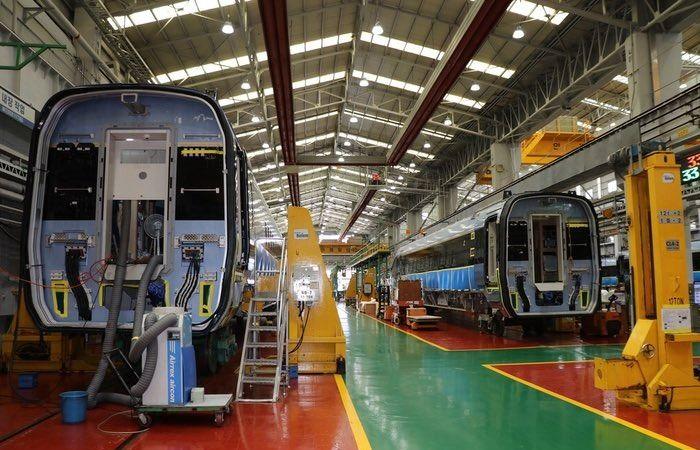It is a strong signal, issued from the heart of Morocco, intended for the great industrial powers: the kingdom is no longer content to buy trains – it wants to produce them. The announcement of the establishment of a Hyundai Rotem factory in Benguerire and a new Alstom site in Fez marks a major inflection in the Moroccan industrial strategy, now resolutely turned towards technological control, upmarket and regional integration.
With the arrival of the South Korean manufacturer, which was entrusted with a historic contract by the National Railway Office (ONCF), Morocco is much more than buying two-storey trains capable of driving at 160 km/h. Above all, he obtains a factory, a transfer of know-how, and a long-term promise of industrialization. The Benguerire site, backed by an industrial development strategy supported by the Korean government – notably through concessional loans – illustrates a new type of partnership: based on location, training and future export, rather than simple trade.
This tilting is not trivial. He intervenes in a context of fierce competition between the world champions of the rail: the French of Alstom, the Spaniards of CAF and Talgo, the Chinese of CRRC, all had an eye on this booming market. Hyundai Rotem, by offering a real localized production platform, has been able to align with the requirements of a now selective Morocco, concerned about its industrial sovereignty.
Read also: Hyundai Rotem wins a historic $ 1.5 billion contract in Morocco
At the same time, Alstom strengthens its presence with a new unit in Fez dedicated to the manufacture of cabins for regional trains. This double movement – Korean in the South, French in the North – translates the growing interest of international industrialists for a Moroccan market which continues to structure itself. In less than two decades, the country has gone from customer status to that of industrial partner. The port of Tangier Med, the Moroccan TGV, pro-investment tax reforms and the launch of specialized industrial clusters (such as Morocco Train Industry) constitute as many assets that strengthen this attractiveness.
For Rabat, the issue exceeds the only rail area. It is a question of starting a training effect on the entire sector: engineering, subcontracting, maintenance, technical training. The objective, clearly assumed, is to transform Morocco into a rail production hub for the African continent, with a sustained export capacity by 2030.
This strategic repositioning is part of a broader reading of the role that the kingdom intends to play in Africa. In a context where mobility infrastructure needs explode throughout the continent, Morocco relies on the rail industry as a lever of economic, diplomatic and technological influence. It thus offers a place in debates on trans -Saharan connectivity, on the energy transition of transport and on regional logistical integration.
The rise of this industry, supported by partners with various profiles, therefore devotes a new stage in the country’s industrial policy. It also testifies to Morocco’s ability to impose its own conditions in international negotiations, to arbitrate between competing powers, and to build a coherent productive fabric around challenges of sovereignty, growth and continental projection.






